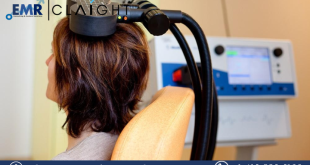I. Introduction to ISO 13485 Certification
A. Definition of ISO 13485
ISO 13485 is an international standard for quality management systems in the healthcare and medical device industry. It ensures that organizations meet regulatory and customer requirements by focusing on safety and effectiveness. The standard is applicable to organizations involved in the design, production, installation, and maintenance of medical devices, ensuring a consistent approach to quality.
B. Importance for Healthcare Businesses
ISO 13485 certification is vital for healthcare businesses as it demonstrates their commitment to meeting regulatory requirements and maintaining high standards of product quality and safety. This certification helps build trust with customers, regulators, and stakeholders. In a competitive healthcare industry, ISO 13485 certification allows businesses to differentiate themselves by adhering to stringent safety protocols, ensuring reliable products and fostering sustainable business growth.
C. Overview of Business Growth Opportunities
ISO 13485 certification offers substantial business growth opportunities by increasing market access, reducing risks, and improving operational efficiencies. Certified companies can expand into new markets, meet global regulatory requirements, and attract more customers. ISO 13485 helps build credibility, leading to long-term partnerships with healthcare providers, distributors, and regulators, positioning businesses for sustainable growth in a competitive healthcare landscape.
II. Enhancing Product Quality and Safety
A. Role of ISO 13485 in Quality Control
ISO 13485 enforces strict quality control standards in medical device manufacturing. It ensures consistent monitoring and evaluation of processes to minimize product defects. The standard helps organizations establish quality management systems that emphasize product safety and performance, ensuring that each product meets regulatory and industry expectations, reducing risks of failure, and enhancing overall product reliability.
B. Importance of Safety in Healthcare Products
Product safety is critical in healthcare, where any failure can have severe consequences for patients. ISO 13485 ensures that healthcare businesses implement rigorous safety measures throughout their product lifecycle. This includes risk assessments, testing protocols, and regulatory compliance. By ensuring safety, ISO 13485 certification helps businesses maintain patient trust and reduce the risk of recalls or legal liabilities.
C. Reducing Risks of Product Failures and Recalls
ISO 13485 focuses on risk management, helping organizations reduce the chances of product failures and recalls. By implementing preventive measures, monitoring product performance, and ensuring thorough testing, companies can avoid costly product recalls and reputational damage. This focus on quality and risk reduction ensures that businesses maintain compliance while protecting their brand and minimizing financial losses.
III. Gaining Competitive Advantage
A. Meeting International Standards
ISO 13485 certification allows healthcare businesses to meet internationally recognized standards, enhancing their global market appeal. By demonstrating compliance with these quality management standards, companies can more easily enter new markets, comply with local regulations, and compete on a global scale, increasing their market share and credibility.
B. Building Trust with Customers and Regulators
ISO 13485 certification builds trust with customers and regulators by ensuring that healthcare products meet stringent quality and safety standards. This trust leads to stronger customer relationships, improved brand loyalty, and smoother regulatory approvals. It signals a company’s commitment to quality, which is essential for gaining and maintaining credibility in the healthcare industry.
C. Improving Market Access and Reputation

ISO 13485 certification opens doors to global markets by meeting the regulatory requirements of different regions. This certification improves a company’s reputation, showcasing its commitment to quality and safety. As a result, certified businesses can access new customer bases, form international partnerships, and enhance their competitive standing in the healthcare sector.
IV. Streamlining Operational Efficiency
A. Standardizing Processes and Documentation
ISO 13485 helps organizations standardize their processes and documentation, leading to more efficient operations. This standardization reduces errors, improves communication, and ensures consistency across departments. By having clear guidelines for quality management, businesses can operate more smoothly, reducing time wasted on redundant processes and documentation issues.
B. Reducing Costs through Quality Management
By improving quality management, ISO 13485 helps healthcare businesses reduce costs associated with defects, recalls, and product failures. Consistent quality control minimizes waste, prevents costly errors, and ensures more efficient resource use. This cost efficiency strengthens profitability and allows businesses to reinvest in growth and innovation.
C. Improving Internal Communication and Collaboration
ISO 13485 enhances internal communication and collaboration by promoting clear roles, responsibilities, and standardized procedures. It encourages cross-departmental cooperation, fostering a culture of quality. This improved communication ensures that everyone is aligned with organizational goals, leading to smoother operations and a more unified approach to achieving quality and compliance.
V. Meeting Regulatory Requirements
A. Compliance with Global Healthcare Regulations
ISO 13485 ensures that healthcare organizations comply with global regulatory requirements for medical devices. By adhering to the standard, businesses can demonstrate that their products meet the necessary safety and quality criteria, making it easier to gain regulatory approvals and maintain compliance in different regions.
B. Avoiding Penalties and Legal Issues
Non-compliance with regulations can lead to costly penalties, recalls, or legal action. ISO 13485 certification helps businesses avoid these risks by ensuring their products meet regulatory standards. This proactive approach reduces the likelihood of legal disputes and helps businesses maintain their reputation and financial stability.
C. Facilitating Smooth Product Approvals
ISO 13485 certification facilitates smoother product approvals by ensuring compliance with regulatory standards from the start. It simplifies the approval process for new medical devices in global markets, reducing delays and ensuring quicker access to healthcare markets. This certification streamlines product registration, saving time and reducing barriers to market entry.
VI. Expanding into Global Markets
A. International Recognition of ISO 13485
ISO 13485 certification is internationally recognized, making it easier for healthcare businesses to expand into global markets. This certification demonstrates that products meet consistent quality standards, building trust with international regulators and customers. As a result, certified businesses have a competitive advantage in entering new markets.
B. Meeting Diverse Regulatory Requirements
ISO 13485 ensures that organizations can meet the regulatory requirements of different regions, facilitating easier market entry. This flexibility allows healthcare businesses to expand into diverse global markets without facing significant regulatory hurdles. The certification ensures compliance with a wide range of local standards, improving market adaptability.
C. Gaining Access to New Customer Bases
ISO 13485 certification opens up new opportunities by granting businesses access to previously untapped customer bases. With certification, companies can enter international markets, form partnerships with healthcare providers, and reach more customers who prioritize certified quality and safety standards in medical devices.
VII. Enhancing Customer Satisfaction and Trust
A. Delivering Consistent, High-Quality Products
ISO 13485 ensures that companies deliver consistent, high-quality healthcare products. This consistency helps build customer trust by providing reliable products that meet safety standards. Consistent quality drives customer satisfaction, leading to positive word-of-mouth and repeat business.
B. Building Long-Term Customer Relationships
ISO 13485 certification fosters long-term customer relationships by instilling confidence in the safety and reliability of products. Customers who trust the quality of certified products are more likely to stay loyal to the brand, leading to sustained growth and stronger customer retention.
C. Strengthening Brand Loyalty
By delivering consistent quality and safety through ISO 13485 certification, businesses can strengthen brand loyalty. Customers who experience reliable and effective products are more likely to return, recommend the brand to others, and stay engaged with the company. This loyalty drives business growth and market dominance.
VIII. Driving Innovation in Medical Devices
A. Encouraging Continuous Improvement
ISO 13485 promotes continuous improvement in medical device manufacturing by encouraging organizations to regularly assess and improve their quality management systems. This focus on improvement drives innovation, ensuring that companies stay competitive and adapt to changing market needs.
B. Aligning with Technological Advancements
ISO 13485 certification supports alignment with technological advancements in the medical device industry. As new technologies emerge, companies with ISO 13485 systems can quickly adapt to incorporate these innovations, ensuring their products remain cutting-edge and compliant with evolving standards.
C. Supporting New Product Development
ISO 13485 certification enhances new product development by providing a robust framework for quality management. This framework ensures that new medical devices are developed with safety, compliance, and performance in mind, reducing the risk of product failures and facilitating smoother market entry.
IX. Conclusion: ISO 13485 as a Growth Driver
A. Recap of Business Growth Benefits
ISO 13485 certification provides numerous benefits, including improved product quality, regulatory compliance, and customer satisfaction. These factors drive business growth by increasing market access, reducing risks, and building trust with stakeholders. Organizations that invest in ISO 13485 are better positioned to compete in the global healthcare market.
B. Call to Action for Healthcare Businesses
Healthcare businesses should prioritize ISO 13485 certification to ensure they meet industry standards and stay competitive. By adopting this certification, companies can improve their operations, expand into new markets, and build stronger customer relationships. Pursuing ISO 13485 is an essential step toward long-term success.
C. Long-Term Value of ISO 13485 Certification
The long-term value of ISO 13485 certification extends beyond regulatory compliance. It fosters a culture of quality, innovation, and continuous improvement, positioning healthcare businesses for sustained success in a dynamic industry. Investing in ISO 13485 helps organizations achieve growth, meet evolving market demands, and maintain a strong competitive edge.
 NCN The National Cycle Network
NCN The National Cycle Network



